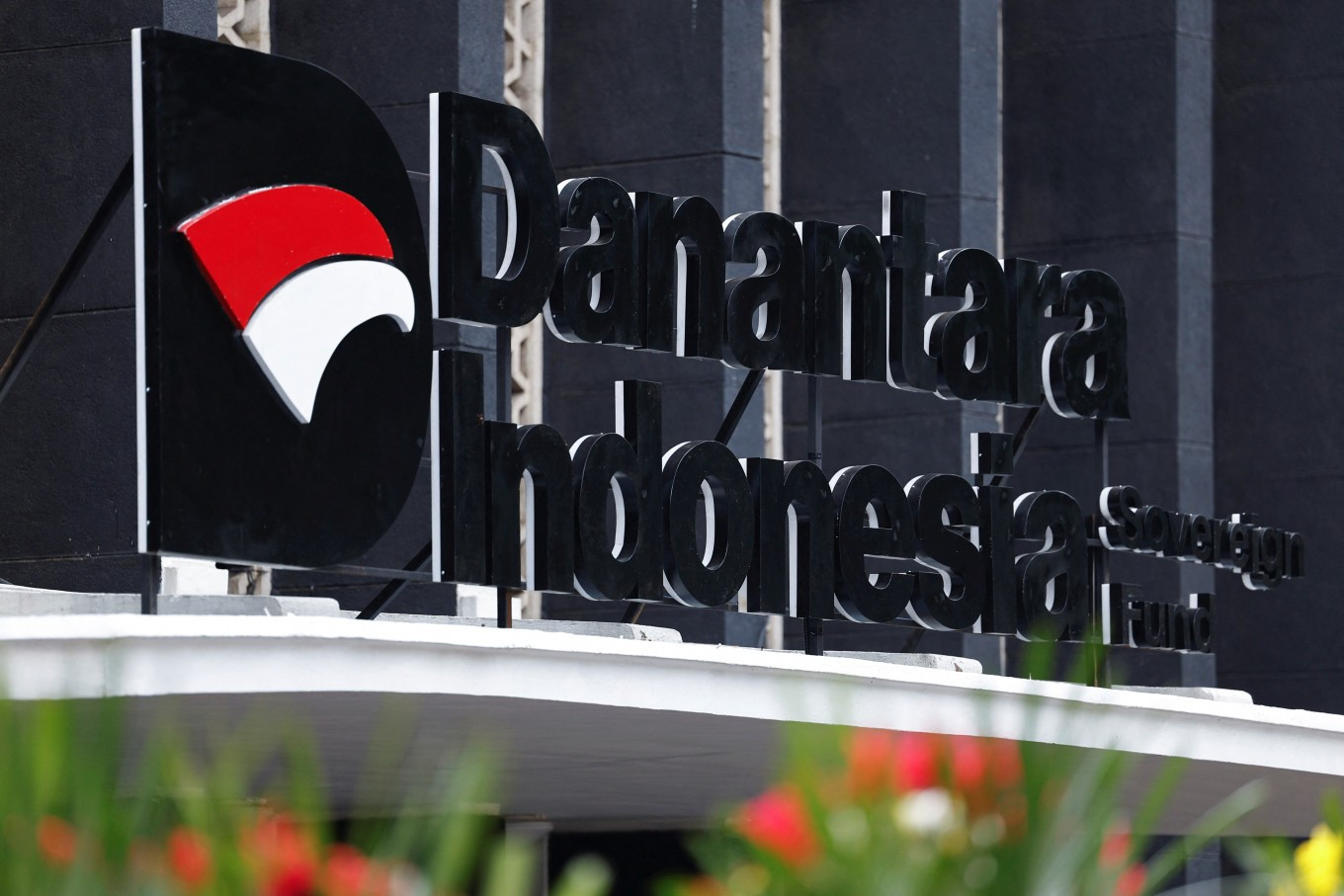News
Danantara’s planned corporate actions rife with contradictions
Tenggara Strategics June 13, 2025 A sign for sovereign wealth fund Danantara Indonesia is seen in front of its headquarters in Jakarta on Feb. 28, 2025. (Reuters/Willy Kurniawan) (Reuters/Willy Kurniawan)
A sign for sovereign wealth fund Danantara Indonesia is seen in front of its headquarters in Jakarta on Feb. 28, 2025. (Reuters/Willy Kurniawan) (Reuters/Willy Kurniawan)
Indonesia’s new sovereign wealth fund (SWF) Danantara has announced plans to invest up to US$5 billion from the $7.5 billion in dividends it collects from state-owned enterprises (SOEs) this year to fund projects that promise both high financial returns and significant economic impact. However, observers remain skeptical that the fund’s planned corporate actions will deliver the promised performance.
Danantara has identified eight sectors it expects to generate high returns while contributing to the national economy: minerals, renewable energy, digital infrastructure, health care, financial services, utility infrastructure, industrial zones and food. Despite this promising outlook, it also plans to invest in troubled SOEs, raising concern about whether this aligns with its stated objective of high returns.
Among the most controversial of these is Danantara’s planned $500 million capital injection for flag carrier Garuda Indonesia. The airline, which received Rp 7.5 trillion in state capital injection (PMN) in 2022, continues to post disappointing results. Its net income plunged from a $251.9 million profit in 2023 to a $69 million loss in 2024. By contrast, regional competitor Singapore Airlines has rebounded strongly since the COVID-19 pandemic, posting a record net profit of $2.8 billion in the 2024-2025 fiscal year after posting $2.7 billion the previous year.
The fund is moving to rescue Garuda because the PMN option has been exhausted, leaving Danantara as the national airline’s only viable lifeline. This has raised a question as to whether the fund’s investments are guided by sound financial strategy or by political necessity.
Another corporate action that has drawn attention is Danantara’s plan to acquire Bank Syariah Indonesia (BSI), the nation’s largest Islamic bank. Currently owned by Bank Mandiri (51.47 percent), Bank Negara Indonesia/BNI (23.24 percent) and Bank Rakyat Indonesia/BRI (15.38 percent), BSI is seen as a key player in developing Indonesia’s sharia finance ecosystem. The acquisition is intended to give BSI greater operational independence to avoid conflicts of interest with its current parent banks. However, it remains unclear if the acquisition will involve any actual capital outlay from Danantara.
While the planned acquisitions might benefit struggling entities like Garuda, they might also come at a cost to well-performing SOEs. Recent shareholder meetings of major SOEs have revealed a trend toward higher dividend payout ratios, seemingly to accommodate Danantara’s capital needs. Telkom Indonesia, for instance, raised its payout ratio to 89 percent this year from 72 percent last year, even as its net profit margin fell from 16.5 percent to 15.8 percent. Bank Mandiri similarly increased its payout ratio to 78 percent, compared to an average 60 percent over the past five years.
While higher dividend payouts increase returns for shareholders, including Danantara, they also reduce SOEs’ capacity to reinvest in long-term growth, potentially undermining their future competitiveness.
The government provided $20 billion in initial capital to Danantara, and has pledged to inject the same amount each year. But this does not come without strings: Danantara is expected to finance a range of national strategic projects (PSN), which might not necessarily align with its high-return investment principle.
Ideally, an SWF like Danantara should be financed by surplus revenue, such as those enjoyed by oil-rich nations like Norway and Qatar. However, Indonesia has run a twin deficit for much of the past decade. The state budget deficit is projected to widen to 2.8 percent of gross domestic product (GDP) this year, up from 2.3 percent in 2024, partly due to costly initiatives like the government’s free nutritious meal (MBG) program.
Moreover, the performance of SWFs globally underscores their vulnerability to market volatility. A report by State Street Global Advisors reveals that while SWF returns peaked at 17 percent during bullish periods, they plummeted to minus 11 percent during the Russian invasion of Ukraine in 2022. Over the 2012-2022 period, the average 10-year return was just 6.1 percent, lower than the 6.8 percent yield of 10-year Indonesian government bonds.
As Danantara embarks on its ambitious investment agenda, corporate governance will become increasingly critical. Yet recent appointments to top SOE posts have raised red flags. The installation of individuals with little relevant experience, many close allies of President Prabowo Subianto including retired military officers, at companies like PT Timah and PT Mineral Industri Indonesia (MIND ID) has sparked concerns over their credibility and competence.
The appointment of high-profile Prabowo loyalists at other strategic SOEs, such as Pertamina and Garuda Indonesia, has fueled further doubt about whether the government’s goal of transforming Danantara into one of the world’s leading SWFs is realistic or mere rhetoric.
Indonesia need only look at Malaysia’s 1MDB scandal as a cautionary tale. Without robust transparency requirements and a strong corporate governance framework, Danantara risks becoming a costly liability rather than a national asset.

